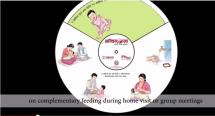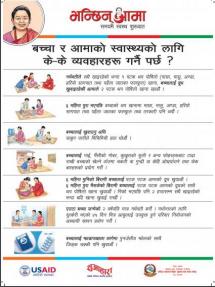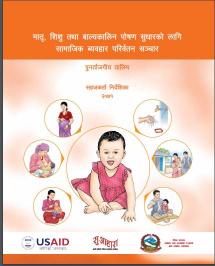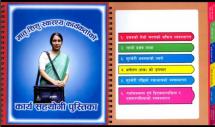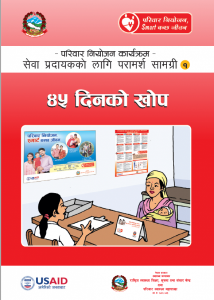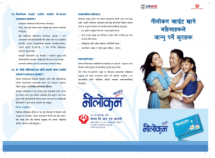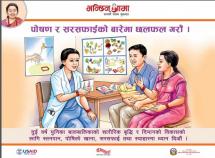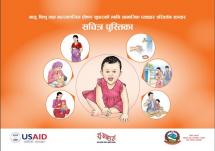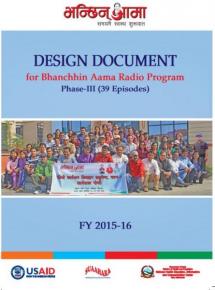How to Use a Complementary Feeding Wheel during Counseling
The USAID-funded Suaahara ‘Good Nutrition’ Project’s Bhanchhin Aama (“Mother says”) campaign comprehensively integrates nutrition, sanitation, agriculture and health services promotion to improve health outcomes. The program focuses on families within the 1000 days from pregnancy till the child is two years old.
The Bhanchhin Aama Campaign developed a complementary feeding wheel for front line workers to use when discussing age specific complementary food during home visits to 1000 days mothers. This short video explains how to use the complementary feeding wheel.
Source: USAID
Date of Publication: March 25, 2019
SIMILIAR RESOURCES
Tools
Examples
- GESI Toolkit
- Maternal Newborn Child Health - Nutrition Quality Improvement Tools
- Suaahara Training Guidelines and Participant Handbooks
- Suaahara Health Facility Operation and Management Committee Capacity Building Training and Operation Guidelines
- IPC for Immunization Toolkit
- Guidance for Providing Informed-Choice Counseling on Sexual Health for Women Interested in PrEP: Kenya and South Africa
- Interpersonal Communication for Immunization (IPC-I)
- Infant and Young Child Feeding Recommendations When COVID-19 is Suspected or Confirmed
- Guidelines for the Use of Antiretroviral Agents in HIV-1-Infected Adults and Adolescents
- Antiretroviral Therapy for HIV Infection in Infants and Children: Recommendations for a Public Health Approach

